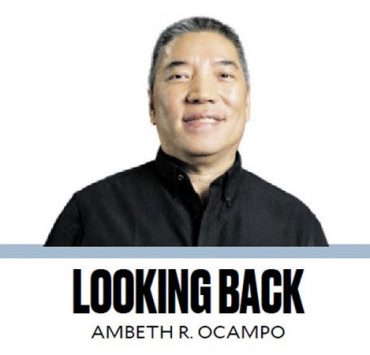One out of 11,000

There is inherent skepticism among those who perceive education as merely a way to produce skilled but mindless workers for economic functions. However, for graduates of the lesser-known discipline of sociology, we were not just taught but awakened. Unlike other programs, sociology does not just provide a set of rigid and technical skills; it offers something equally essential for survival in this world.
While we can’t exactly list the curriculum content, sociology promises its graduates one important realization: that our existence is insignificant but collectively powerful. The values we live by, the meanings we share, and the reality we create are all socially constructed, and social constructs cannot be created by any one person alone. One of the important social values created by people is that of education, the narrative that “earning a degree with a Latin distinction is the key to success,” and so on.
The graduation ceremony symbolizes our entry into the workforce, where we serve a larger purpose on multiple levels. First, the macro level, where we contribute to the economy by becoming productive members of the country and paying taxes to our employers. Second, the meso level, where we serve society by giving back to the community as mandated by the values of the state university. And lastly, the micro level, where we contribute to the betterment of our family and pursue our career paths to make a name for ourselves, ensuring that we leave a lasting impact.
However, before we look forward, I must look back. After all, the first and most important skill you will gain as a sociology graduate is the capacity to look at the intersection of history and biography—what C. W. Mills calls the sociological imagination. The intersection of my own life with the lives of the people within my immediate environment and the bigger events happening around the world that, in one way or another, shaped my life.
Experiencing three consecutive generations of teenage pregnancy within my family has placed a significant burden on me to break this cycle. This is my history. The context that has defined and shaped the type of upbringing I experienced, marked by neglect and a lack of knowledge about my paternal lineage. Despite grappling with poverty, limited educational opportunities, and the social challenges associated with adolescent pregnancy, my family has persevered. While my family’s imperfections are undeniable, they represent the foundation of my identity and the driving force behind my aspirations.
Carrying the weight of “not ending up like your sister” drives me to excel and prove the doubters wrong. As a result, this social burden has shaped me into a person who defines herself through academic and leadership achievements. It has led my peers to look up to me and admire my ability to lead and my strong sense of responsibility. Many see me as someone to look up to for my skills and competence. This is my biography. However, the sense of responsibility I uphold in my life isn’t fueled by a desire to compete, but rather by a desire not to be like the people who brought me into the world only to abandon me. On another note, I often wonder if my drive comes from the stories I was told when I was younger, which said I had always been a fighter. They said I fought when my mother tried to abort me when I was still a fetus, and I wonder why. I’ll probably never know the answer, but the idea that I fought to be born has been a constant factor in all of my decision-making, leading me to where I am today.
Yet, graduation is not a question of where we are, but of where we’re going. The pressure to establish a name for oneself is heavy, to contribute to society and to the discipline, to make a career path that will solidify your name so that decades from now, the university’s alumni association will post your obituary on their Facebook page with a caption, “she was a proud graduate of the Sintang Paaralan that contributed to her discipline. Whatnots, and she will be missed.” Which led me to my earlier realization, that my existence alone is insignificant. However, the existence of more than 11,000 graduates of Batch 2024 probably feels exactly as I do–we share the collective experience of this societal pressure.
At this pivotal moment, I am but one out of the 11,000 graduates of Class 2024, but I fear not, knowing that I am not alone as we stand here at the crossroads, feeling apprehensive about where the future will take us. Knowing that we are not alone, as we flip the tassel signifying the end of our journey as “Iskolar ng Bayan,” we march together outside of this hall, toward our uncertain yet exciting future.
With this uncertainty that makes us tremble in fear, we walk toward our future with a different perspective that this discipline has equipped us with: a way of seeing the world from a sociological perspective.
—————-
Sallymir C. Santillan, 23, is a sociology graduate from the Polytechnic University of the Philippines.

















